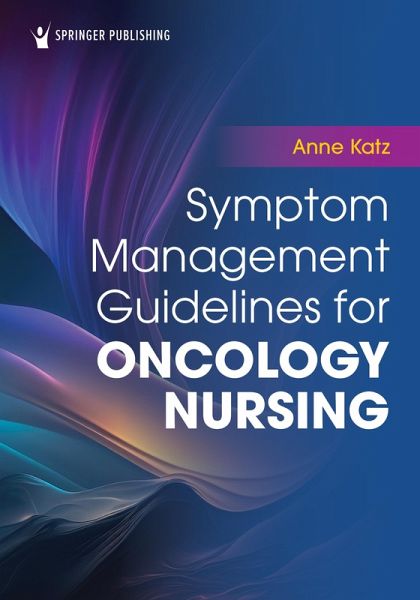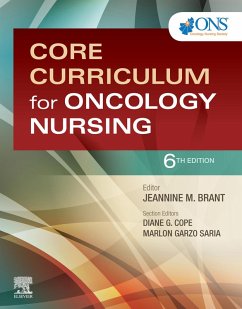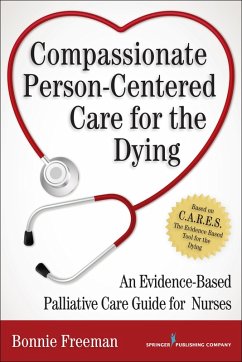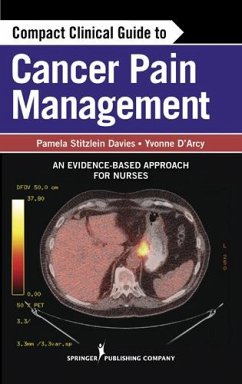
Symptom Management Guidelines for Oncology Nursing (eBook, ePUB)
Versandkostenfrei!
Sofort per Download lieferbar
59,95 €
inkl. MwSt.
Weitere Ausgaben:

PAYBACK Punkte
30 °P sammeln!
Uses a systems-based approach to for rapid access to symptoms commonly experienced during and after treatmentWritten in an easy-to-read format for use in daily practice, this evidence-based resource delivers the most current, comprehensive clinical guidelines for key pharmaceutical and supportive interventions with patients suffering from cancer. The book is distinguished by its systems-based approach which addresses--from head-to-toe--the symptoms commonly experienced by cancer patients during and after treatment.Each section of the book offers a comprehensive examination of common cancer sym...
Uses a systems-based approach to for rapid access to symptoms commonly experienced during and after treatment
Written in an easy-to-read format for use in daily practice, this evidence-based resource delivers the most current, comprehensive clinical guidelines for key pharmaceutical and supportive interventions with patients suffering from cancer. The book is distinguished by its systems-based approach which addresses--from head-to-toe--the symptoms commonly experienced by cancer patients during and after treatment.
Each section of the book offers a comprehensive examination of common cancer symptoms along with clinical guidance on the most effective means of management. Sections cover general symptoms (fatigue, pain, alopecia) as well as those experienced in specific areas including gastrointestinal, genitourinary, pulmonary, neurological, cutaneous, and psychosocial. Chapters within each section consistently address such salient issues as prevalence, contributing factors, assessment, and management, along with a supporting case study and review questions to reinforce information. Textboxes and callouts pinpoint critical information throughout. Ancillaries include an Instructor's PowerPoint slide deck.
Key Features:
Written in an easy-to-read format for use in daily practice, this evidence-based resource delivers the most current, comprehensive clinical guidelines for key pharmaceutical and supportive interventions with patients suffering from cancer. The book is distinguished by its systems-based approach which addresses--from head-to-toe--the symptoms commonly experienced by cancer patients during and after treatment.
Each section of the book offers a comprehensive examination of common cancer symptoms along with clinical guidance on the most effective means of management. Sections cover general symptoms (fatigue, pain, alopecia) as well as those experienced in specific areas including gastrointestinal, genitourinary, pulmonary, neurological, cutaneous, and psychosocial. Chapters within each section consistently address such salient issues as prevalence, contributing factors, assessment, and management, along with a supporting case study and review questions to reinforce information. Textboxes and callouts pinpoint critical information throughout. Ancillaries include an Instructor's PowerPoint slide deck.
Key Features:
- Delivers evidence-based guidance for oncology specialists and for those who care for individuals with cancer in their general practice
- Provides the most up-to-date information on key pharmaceutical and supportive interventions
- Highlights critical information with textboxes and callouts
- Includes a case study and review questions in each chapter to reinforce content
- Presents information based on established and validated guidelines from NCCN, ONS, ASCO, NCI, and others
- Includes PowerPoint slides for use by staff educators
Dieser Download kann aus rechtlichen Gründen nur mit Rechnungsadresse in A, D ausgeliefert werden.













